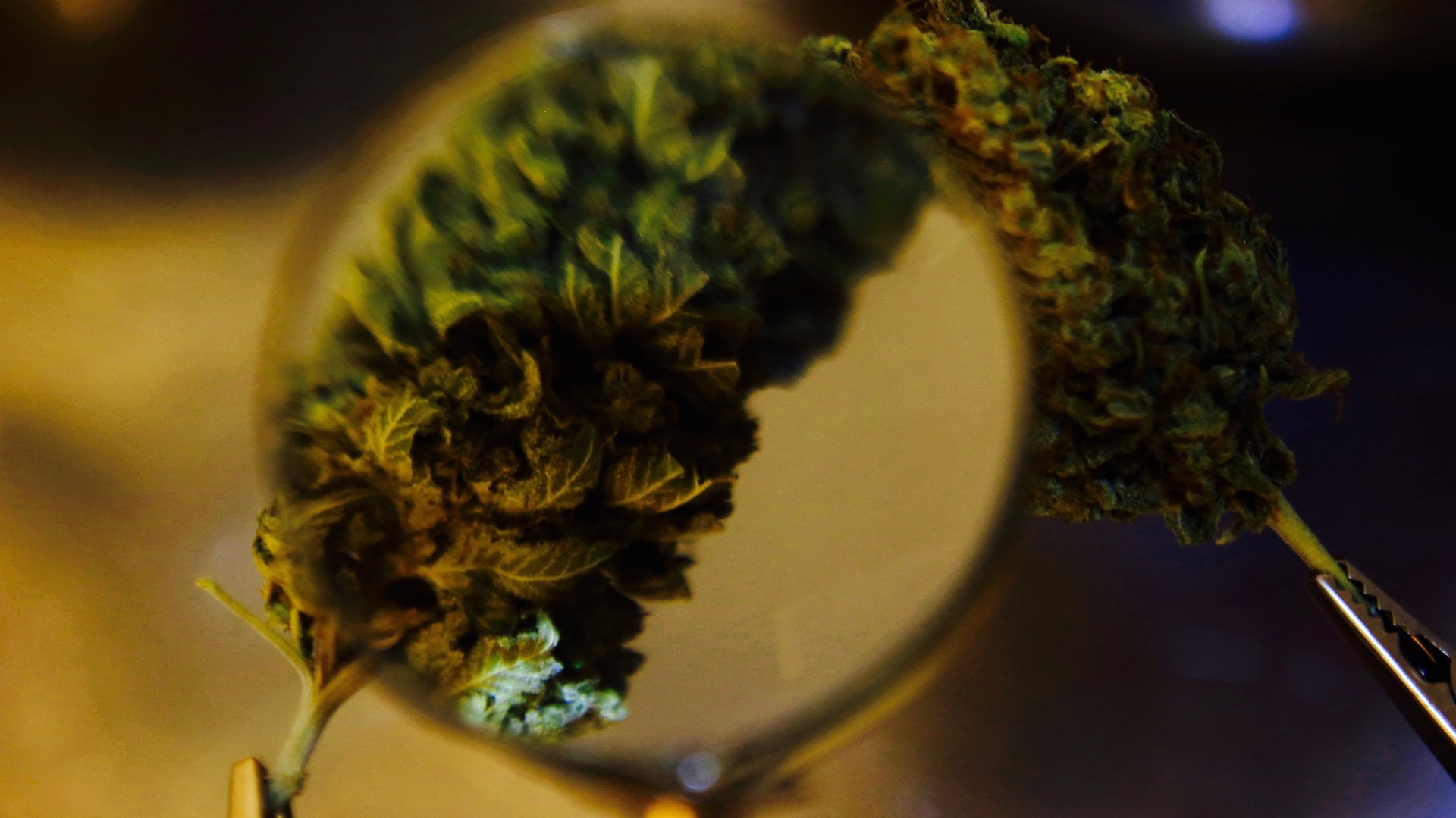Organic cannabis growers solve the problem of poisonous pot with compost
Marijuana consumers have long proselytized for their drug of choice with the notion that it’s nature’s herb. Weed is of the Earth; it grows naturally, and so is relatively clean compared to synthetic concoctions like cocaine, say.


Marijuana consumers have long proselytized for their drug of choice with the notion that it’s nature’s herb. Weed is of the Earth; it grows naturally, and so is relatively clean compared to synthetic concoctions like cocaine, say.
That’s true-ish.
Marijuana is illegal on a federal level in the US, and legal to varying degrees in 29 states and Washington DC, so it’s in an agricultural gray zone. Cultivation is not regulated by the Environmental Protection Agency, nor is pesticide use guided by Department of Agriculture standards. So marijuana growers have no guidance and operate outside the confines of federal law in this regard.
For growers, this is one advantage of weed’s illegality: they can use chemicals with abandon, and do. This allows for more weed to grow bigger and quicker. States have been slow to catch up—even California, which has had a medical marijuana program in place for two decades, is only now planning to regulate pot growers’ pesticide use starting in January 2018, when weed becomes legal recreationally.
SC Labs, a California cannabis-testing company, finds three to four in 10 samples examined contain traces of pesticides that shouldn’t be used on marijuana. Lab president Josh Wurzer told Bloomberg News that one of these even transforms into a poisonous gas when ignited. He personally shirks pot grown with chemicals: “I don’t want some farmer with no one looking over their shoulder spraying away all kinds of pesticides that they don’t really understand, that they are not really trained to use.”
Concerns about chemical use have led to a composting revolution. Composting is a natural way to promote healthy soil and boost plant growth; in some cases, it can supplement or replace chemical pesticides and fertilizers altogether when used with natural pest deterrents like neem. Growers who compost tend to do so because they prefer chemical-free means of improving crops. Malibu Compost, a California company, says it has been unable to keep up with the demand for compost by organic cannabis growers in the last two years—they now account for 35% of the company’s sales, equal to about $1 million annually.
Malibu Compost co-founder Randy Ritchie predicts even more demand for organic compost blends when growers see they can save money by revitalizing soil rather than replacing it annually. Heavy chemical use depletes soils and some growers truck in new dirt every year to ensure a robust crop. Composting, on the other hand, feeds soil. It puts nutrients into the dirt so that the same earth continually yields healthy weed. It maintains soil quality and ultimately saves money, Ritchie says.
Of course, the real key to demand for organic cannabis, and compost, is consumers. ”Our customer base will grow as people are willing to pay more for quality,” Ritchie told colleagues at a national composting conference in Los Angeles in March, the Cannifornian reports.
Various organizations offer organic marijuana certifications, like Clean Green Certified and the Organic Cannabis Association, which provides different levels of certification—some growers use no chemicals while others certify only that there are no residual toxic traces in their products. For consumers, there are sites like Honest Marijuana, which directs them to dispensaries selling organic weed.
There are no national US standards for organic cannabis and therefore no legal definition to guide growers. Still, that hasn’t stopped the “green” weed market from targeting conscious pot consumers willing to pay a premium for a more natural experience. In Santa Cruz county, California, for example, where marijuana is grown locally and dispensaries are abundant, organic weed costs more than twice as much as an equivalent grown with chemicals.
Those that promote organic weed believe it’s a worthwhile investment, saying it’s more satisfying, non-toxic, and less environmentally taxing. They argue that consuming clean marijuana is no less important than eating chemical-free food. As Honest Marijuana’s website notes, “Organic vegetables are sometimes twice the price of non organic vegetables. Are the benefits worth it?”